Christian Tutschku
Training robust and generalizable quantum models
Nov 20, 2023



Abstract:Adversarial robustness and generalization are both crucial properties of reliable machine learning models. In this paper, we study these properties in the context of quantum machine learning based on Lipschitz bounds. We derive tailored, parameter-dependent Lipschitz bounds for quantum models with trainable encoding, showing that the norm of the data encoding has a crucial impact on the robustness against perturbations in the input data. Further, we derive a bound on the generalization error which explicitly depends on the parameters of the data encoding. Our theoretical findings give rise to a practical strategy for training robust and generalizable quantum models by regularizing the Lipschitz bound in the cost. Further, we show that, for fixed and non-trainable encodings as frequently employed in quantum machine learning, the Lipschitz bound cannot be influenced by tuning the parameters. Thus, trainable encodings are crucial for systematically adapting robustness and generalization during training. With numerical results, we demonstrate that, indeed, Lipschitz bound regularization leads to substantially more robust and generalizable quantum models.
Bringing Quantum Algorithms to Automated Machine Learning: A Systematic Review of AutoML Frameworks Regarding Extensibility for QML Algorithms
Oct 06, 2023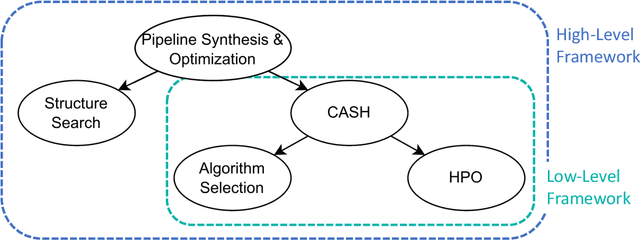

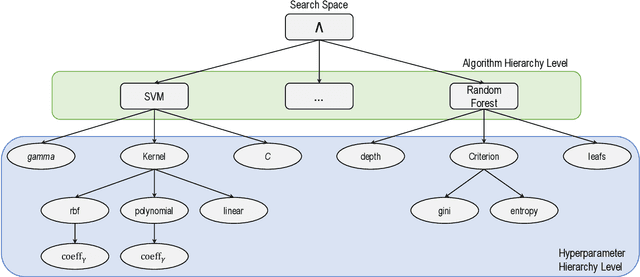
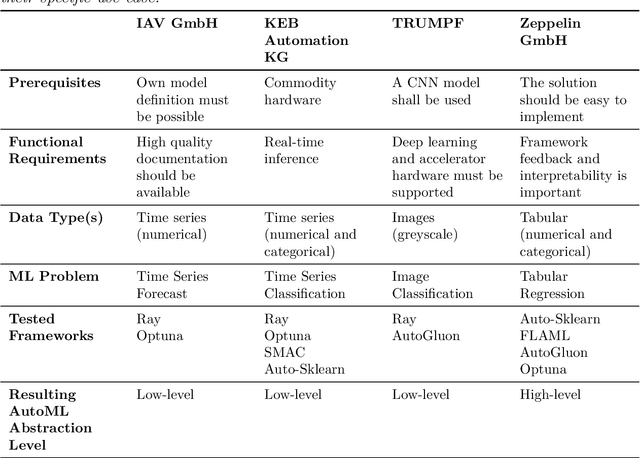
Abstract:This work describes the selection approach and analysis of existing AutoML frameworks regarding their capability of a) incorporating Quantum Machine Learning (QML) algorithms into this automated solving approach of the AutoML framing and b) solving a set of industrial use-cases with different ML problem types by benchmarking their most important characteristics. For that, available open-source tools are condensed into a market overview and suitable frameworks are systematically selected on a multi-phase, multi-criteria approach. This is done by considering software selection approaches, as well as in terms of the technical perspective of AutoML. The requirements for the framework selection are divided into hard and soft criteria regarding their software and ML attributes. Additionally, a classification of AutoML frameworks is made into high- and low-level types, inspired by the findings of. Finally, we select Ray and AutoGluon as the suitable low- and high-level frameworks respectively, as they fulfil all requirements sufficiently and received the best evaluation feedback during the use-case study. Based on those findings, we build an extended Automated Quantum Machine Learning (AutoQML) framework with QC-specific pipeline steps and decision characteristics for hardware and software constraints.
Benchmarking Automated Machine Learning Methods for Price Forecasting Applications
Apr 28, 2023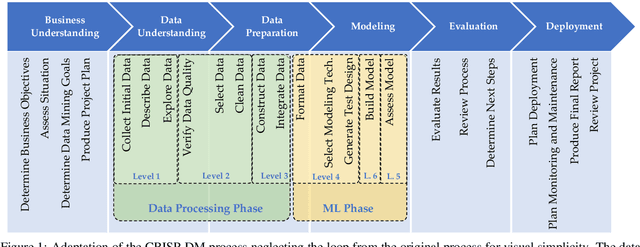
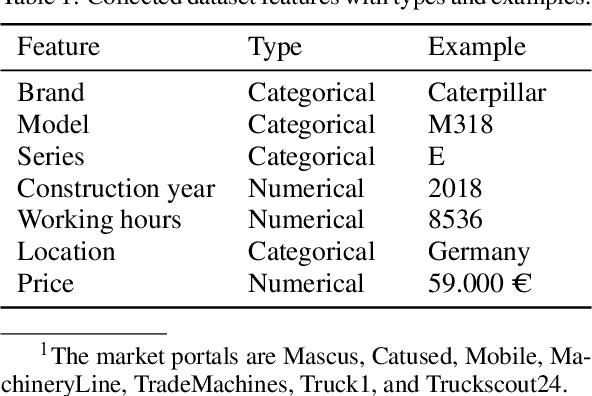
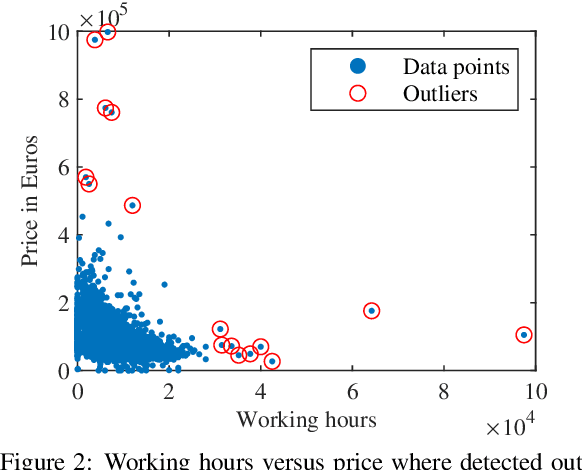

Abstract:Price forecasting for used construction equipment is a challenging task due to spatial and temporal price fluctuations. It is thus of high interest to automate the forecasting process based on current market data. Even though applying machine learning (ML) to these data represents a promising approach to predict the residual value of certain tools, it is hard to implement for small and medium-sized enterprises due to their insufficient ML expertise. To this end, we demonstrate the possibility of substituting manually created ML pipelines with automated machine learning (AutoML) solutions, which automatically generate the underlying pipelines. We combine AutoML methods with the domain knowledge of the companies. Based on the CRISP-DM process, we split the manual ML pipeline into a machine learning and non-machine learning part. To take all complex industrial requirements into account and to demonstrate the applicability of our new approach, we designed a novel metric named method evaluation score, which incorporates the most important technical and non-technical metrics for quality and usability. Based on this metric, we show in a case study for the industrial use case of price forecasting, that domain knowledge combined with AutoML can weaken the dependence on ML experts for innovative small and medium-sized enterprises which are interested in conducting such solutions.
 Add to Chrome
Add to Chrome Add to Firefox
Add to Firefox Add to Edge
Add to Edge